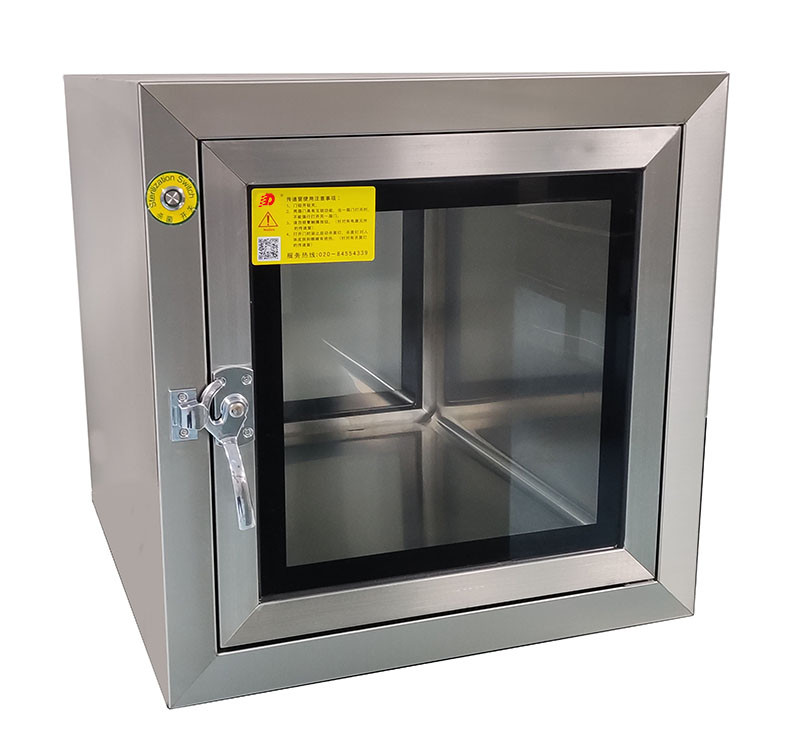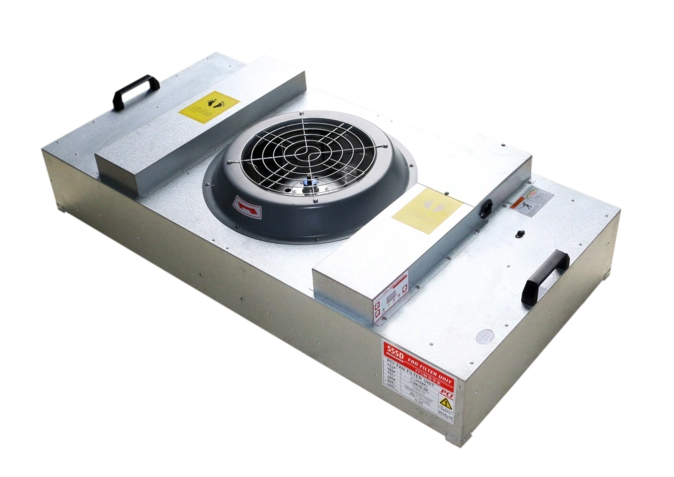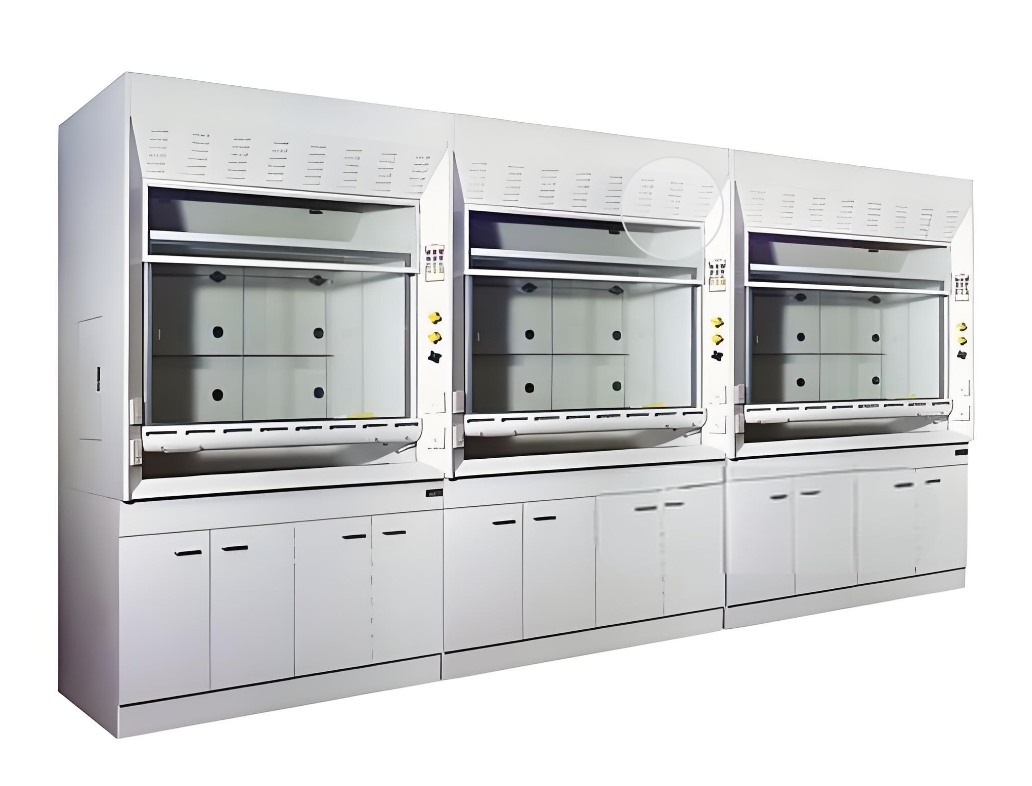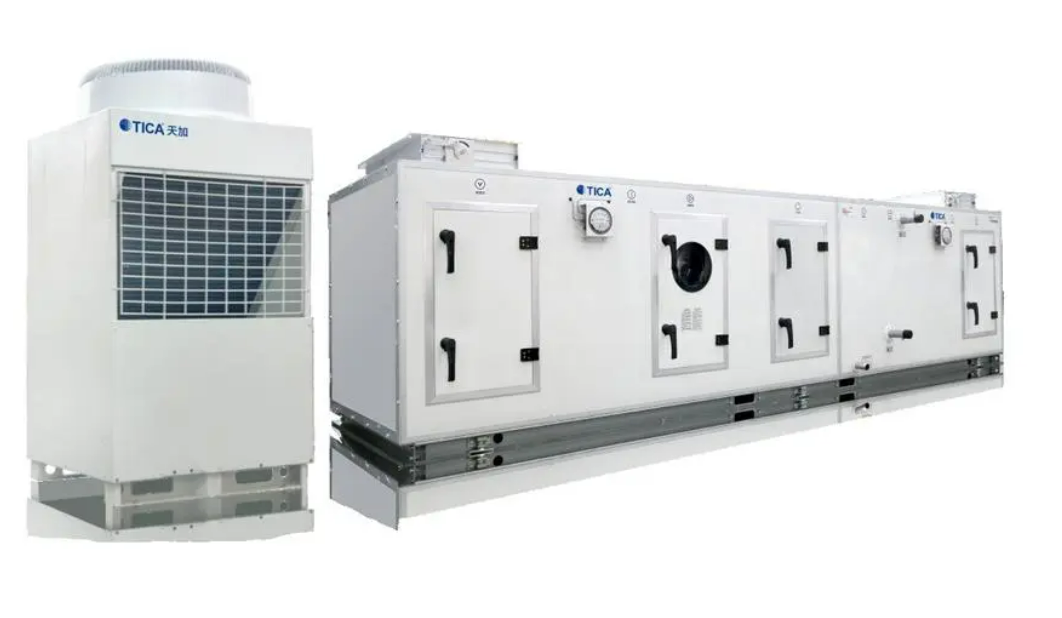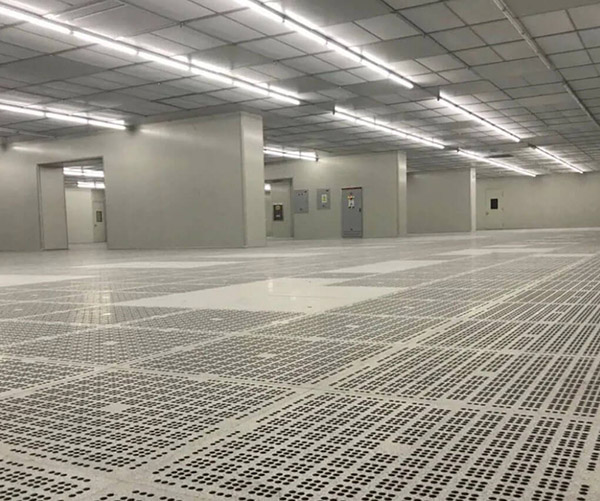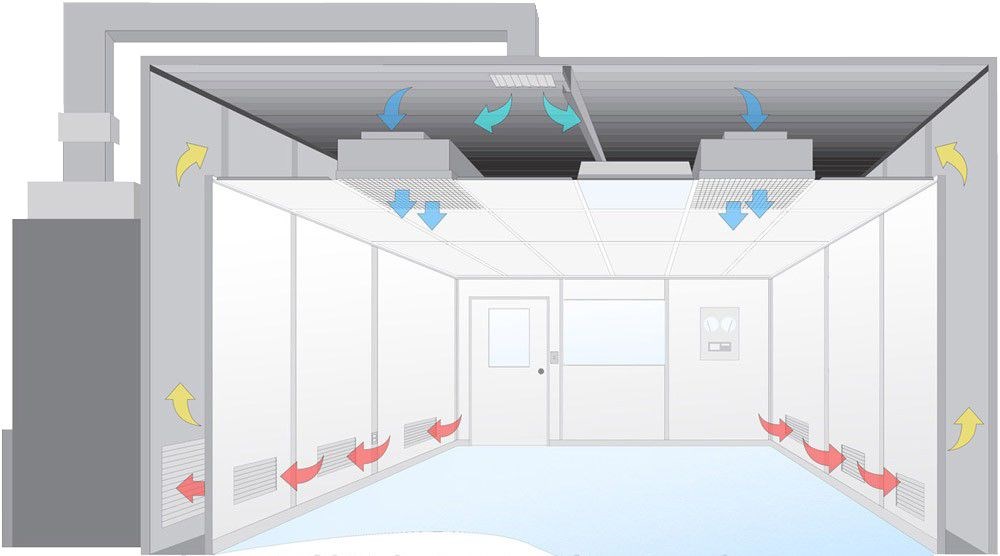In the realm of cleanroom technology, understanding the nuances between different air filtration systems is crucial for maintaining optimal environments. Two key components often discussed are Fan Filter Units (FFUs) and High-Efficiency Particulate Air (HEPA) filters. While both play significant roles in controlling airborne contaminants, they serve distinct purposes and operate differently. This article will elucidate the differences between FFUs and HEPA filters, their components, and their specific applications in cleanroom settings.
What is the Difference Between FFU and HEPA Filter?

The primary distinction between a Fan Filter Unit (FFU) and a High-Efficiency Particulate Air (HEPA) filter lies in their structure and function. An FFU is a complete system that integrates a fan with a HEPA or ULPA filter to actively circulate and filter air. It is designed to maintain cleanroom environments by providing a continuous flow of filtered air, thereby minimizing particulate contamination. In contrast, a HEPA filter is a standalone filtration component that captures small particles from the air but does not move air on its own. It requires an external fan or Ventilation system to draw air through the filter. Therefore, while HEPA filters are essential for air purification, they lack the active air movement capabilities that FFUs provide. Understanding this difference is crucial for selecting the right equipment for specific cleanroom applications, ensuring that air quality meets stringent industry standards.
FFU Components

FFU Enclosure
Enclosure Material
The enclosure of the FFU (Fan Filter Unit) is typically made from stainless steel or aluminum alloys. These materials offer excellent corrosion resistance and structural integrity, which significantly extends the service life of the unit. The surface treatment often involves electrostatic painting, enhancing its aesthetic appeal and dirt resistance.
Enclosure Manufacturing
The manufacturing process of the FFU enclosure includes laser cutting, bending, and welding, ensuring both stability and sealing. Deiiang Company adheres to the ISO9001 quality management system during production, guaranteeing that each FFU meets high industry standards.
Enclosure Function
The primary role of the FFU enclosure is to provide a sealed workspace that ensures the circulation and filtration of Clean air while protecting the internal components from external environmental influences. The design also considers maintenance convenience, allowing easy access for periodic checks and filter replacements.
FFU Fan
Deiiang Company utilizes fans from renowned brands, such as EBM from Germany and American Manufacturers like Ametek. These brands are recognized for their efficiency and low noise levels.
Fan Specifications (Interspersed List)
Airflow: >1000 m³/h
Noise Level: ≤50 dB(A)
Power Consumption: <200 W
Efficiency: >80%
Fan Function
The FFU fan is responsible for forcing clean air into the cleanroom, ensuring effective air circulation and flow. With precision design, Deiiang's FFUs maintain stable airflow under varying conditions, enhancing the overall air quality within the cleanroom.
FFU HEPA Filter
Function of FFU HEPA
The HEPA filter is a crucial component of the FFU, primarily serving to filter out airborne particles to ensure that the air quality within the cleanroom meets industry standards for high cleanliness.
FFU HEPA Parameters (Interspersed List)
Filtration Efficiency: ≥99.97% (for 0.3μm particles)
Initial Resistance: <250 Pa
Maximum air velocity: <1.0 m/s
Lifespan: Typically 3-5 years (depending on environment)
HEPA Filter Replacement
The frequency of HEPA filter replacement depends on the cleanliness level of the environment and the condition of the filter. Deiiang Company recommends regular checks on the filter status and timely replacement when the initial resistance exceeds specified values to ensure optimal FFU performance.
FFU Circuit
The electrical circuit system of the FFU is essential for its core functions, controlling the operation and status of the fan. The circuit design typically includes overload protection and temperature monitoring to ensure safe operation. Deiiang Company employs high-quality Electronic components in circuit design to enhance system stability and reliability.
The FFU circuit system features a simple and clear design, facilitating maintenance. The circuit board integrates multiple protective functions, effectively preventing overload and short-circuit incidents, thus increasing the safety of the equipment.
The FFU's circuit control system is not just a basic switch for the fan; it is an intelligent management system. This system can monitor the fan's operational status in real-time and automatically adjust the airflow to respond to changes in the cleanroom environment. Moreover, Deiiang Company has integrated remote monitoring capabilities into the circuit design, allowing users to check the operational status and historical data of the FFU via smartphones or computers, facilitating management and maintenance. The stability of the circuit system directly impacts the efficiency and lifespan of the FFU, making it a significant focus for investment in research and development by Deiiang.The design and implementation of the circuit are crucial for the FFU's normal operation. Deiiang Company is committed to providing high-quality circuit solutions that ensure the FFU maintains excellent performance and stability under various working conditions.
FFU Central Control System
The FFU central control system enables centralized management and control of multiple FFU units, enhancing the operational efficiency of the cleanroom. Deiiang Company's developed control system allows for remote monitoring, providing flexibility and convenience for users.
FFU Central Control System
Deiiang's central control system for FFUs integrates advanced technology to simplify the management of multiple units within a cleanroom environment. This system allows users to monitor and control all connected FFUs from a single interface, improving operational efficiency and responsiveness. Key features include:
Real-Time Monitoring: Users can track the operational status of each FFU, including airflow rates and filter status.
Automated Alerts: The system generates alerts for maintenance needs,ensuring that users are notified when filters require replacement or when the fan's performance deviates from optimal levels.
User-Friendly Interface: The control system is designed with an intuitive interface, allowing easy navigation and quick access to operational data.
Data Logging: Historical performance data can be recorded and analyzed to identify trends and improve maintenance schedules.
Remote Access: Users can access the system remotely via secure connections, enabling management from anywhere, which is particularly useful in large facilities.
This centralized approach not only streamlines operations but also enhances overall air quality control within cleanrooms. By utilizing the FFU central control system, Deiiang Company ensures that facilities maintain rigorous cleanliness standards while optimizing resource usage. The integration of this advanced control system has proven to reduce energy consumption by up to 20%, leading to significant cost savings for clients. Moreover, real-time adjustments to airflow based on the current cleanroom conditions help maintain a stable environment, crucial for sensitive processes in industries like pharmaceuticals and Semiconductor manufacturing.
In conclusion
the FFU central control system is a vital component in modern cleanroom management. Deiiang Company’s commitment to innovation ensures that users benefit from cutting-edge technology that enhances the performance and reliability of FFUs. The ability to centralize control and monitor multiple units not only improves operational efficiency but also supports compliance with stringent cleanliness standards, making it an indispensable tool for facilities that prioritize air quality and operational excellence. By leveraging these advanced systems, Deiiang continues to lead in the cleanroom technology sector, providing clients with solutions that meet their evolving needs.
Why Do I Need an FFU?

FFUs are essential in cleanroom environments for several reasons. First, they provide a consistent flow of filtered air, which is crucial for maintaining the sterile conditions required in industries such as pharmaceuticals, biotechnology, and electronics manufacturing. By continuously circulating air, FFUs help to dilute and remove airborne contaminants, thereby reducing the risk of product contamination and ensuring compliance with industry regulations.
Additionally, FFUs offer flexibility in design and layout. They can be arranged in various configurations to meet the specific airflow and cleanliness requirements of different applications. This adaptability makes them ideal for dynamic environments where space and operational needs may change over time.
Moreover, FFUs often incorporate monitoring systems that allow for real-time assessment of air quality, enhancing operational efficiency. In summary, investing in FFUs is vital for organizations that prioritize cleanliness and operational integrity, making them a cornerstone of effective cleanroom technology.
HEPA Filters Do Not Regulate Air Movement

Importance of External Airflow
HEPA filters are designed solely for filtration and do not create airflow on their own. They rely on an external system to move air through the filter, which is crucial for their effectiveness.
Limitations of Standalone HEPA Filters
Since HEPA filters lack built-in fans, their performance is directly dependent on the airflow provided by external devices. This means that while HEPA filters can efficiently trap airborne particles, they cannot control the distribution of air within a space. Without proper airflow, the filter’s effectiveness diminishes, as stagnant air can lead to the accumulation of contaminants. Therefore, in environments requiring strict cleanliness, standalone HEPA filters may not suffice without an accompanying air movement system. In contrast, FFUs combine filtration and airflow, ensuring consistent air quality and cleanliness.
Need for Air Movement
Effective air movement is essential for maintaining optimal conditions in cleanrooms, making FFUs a preferable choice for many applications.
HEPA Filter Replacement

Regular replacement of HEPA filters is critical for maintaining air quality and system efficiency. Over time, filters can become clogged with particles, reducing their effectiveness and airflow. The frequency of replacement depends on several factors, including the specific application, the level of usage, and environmental conditions. Generally, HEPA filters should be inspected every six months and replaced annually or as recommended by the manufacturer. To ensure optimal performance, it is essential to follow the manufacturer's guidelines for replacement. Signs that a HEPA filter may need replacing include increased pressure drop, decreased airflow, or visible discoloration. Neglecting filter replacement can lead to compromised air quality, increased energy consumption, and potential contamination of products or processes.
In cleanroom environments, maintaining a strict schedule for HEPA filter replacement is imperative. This not only ensures compliance with industry standards but also protects the integrity of sensitive operations. Regular maintenance and proactive filter management can extend the life of your filtration system and enhance overall efficiency.
Summary
In conclusion, understanding the differences between FFUs and HEPA filters is crucial for effective cleanroom management.
 +86 18186671616
+86 18186671616 Jason@cleanroomequips.com
Jason@cleanroomequips.com
 MENU
MENU







